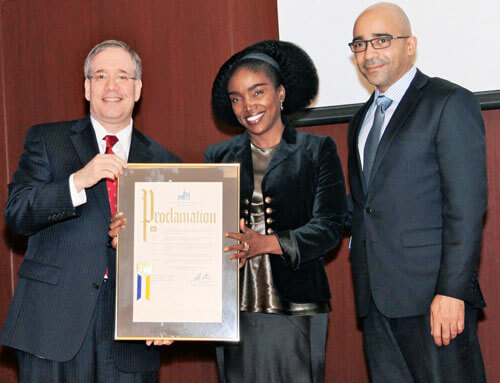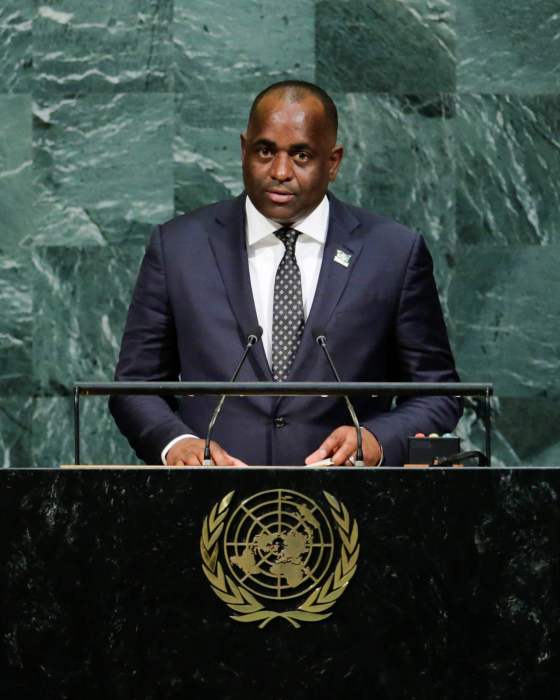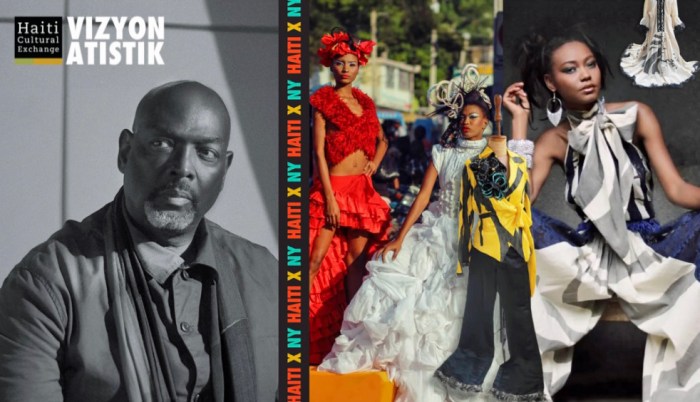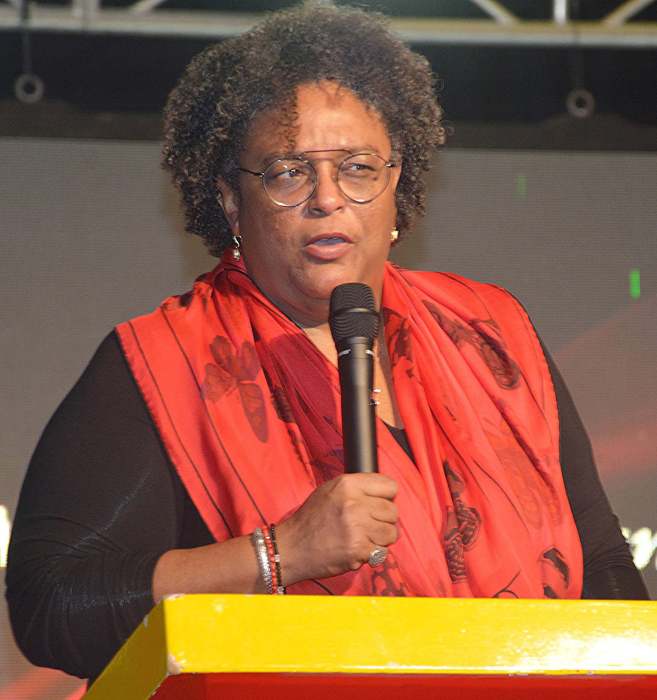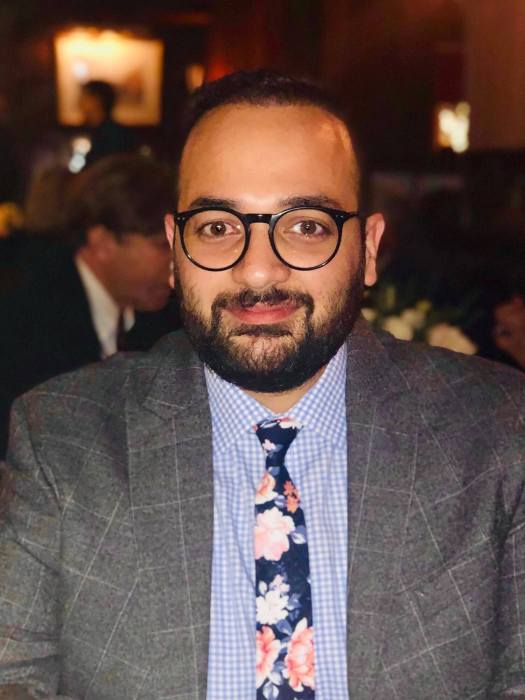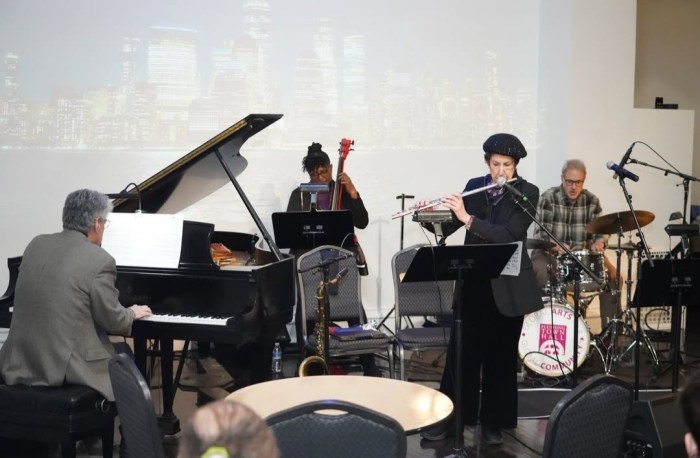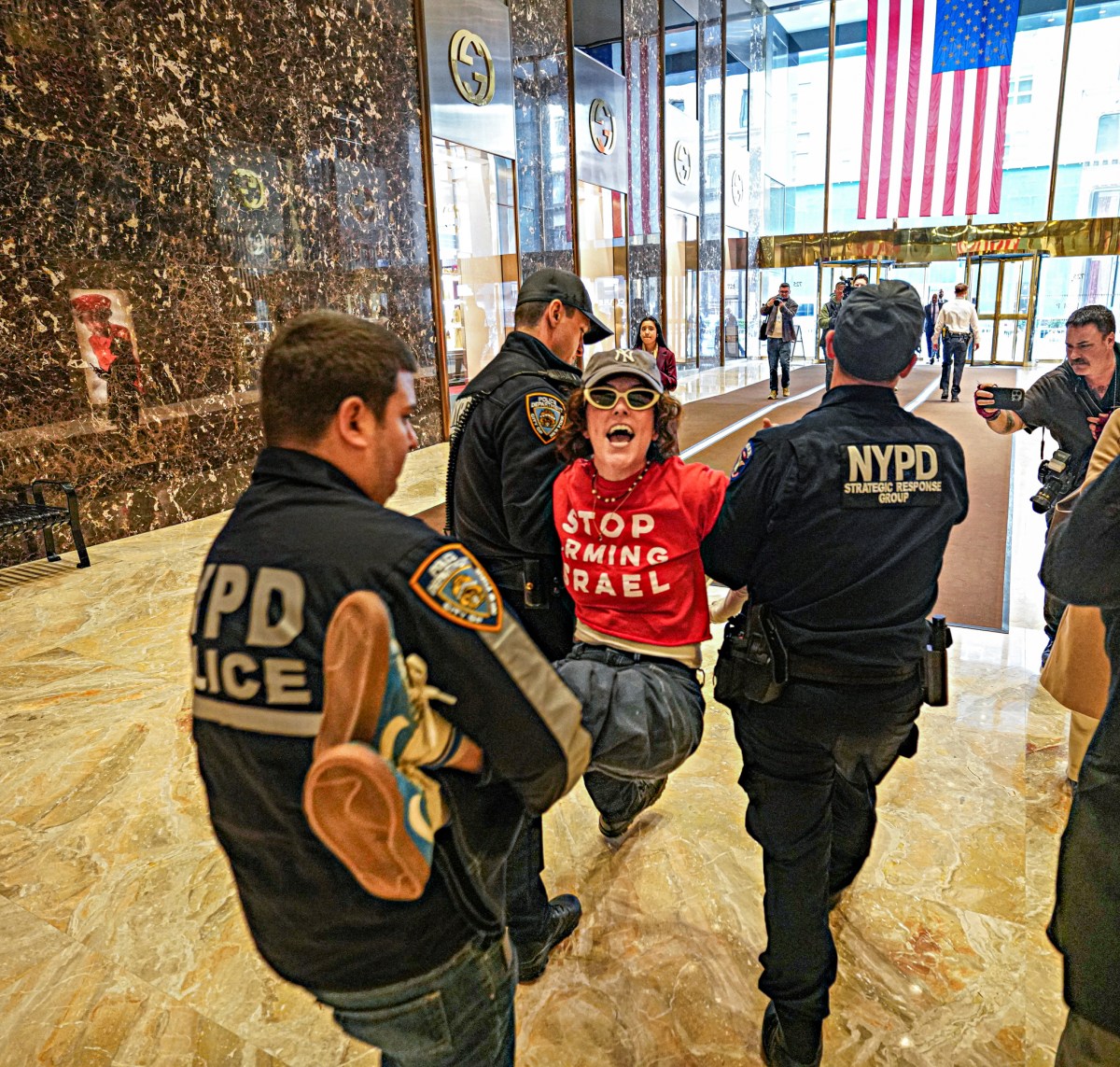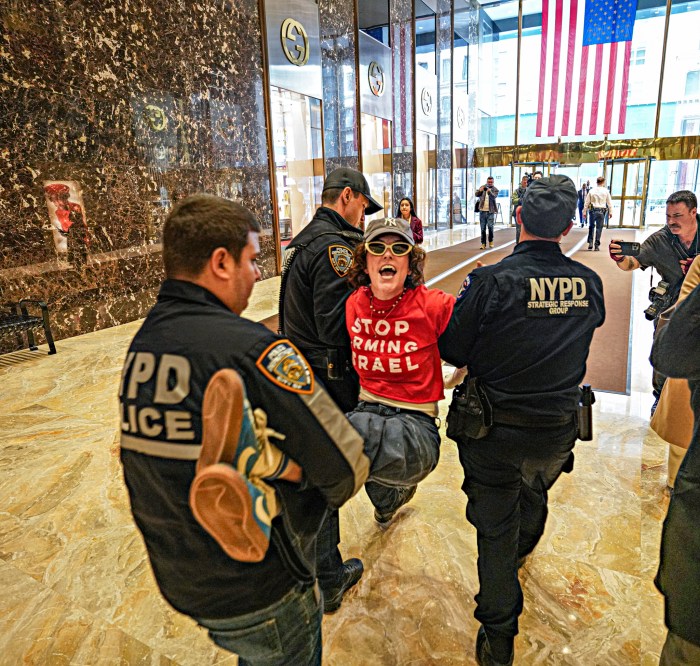For the past six years during the month of January, the Haitian community has joined Manhattan Borough President Scott M. Stringer in paying tribute to Haiti’s Independence, which in fact is celebrated every Jan. 1. The first and only successful slave rebellion, Haiti’s independence was an inspiration for independence for many Latin American countries.
At past commemorations, the Borough President’s office in the Municipal Building was bursting its space with celebrants. This year on Jan. 24, the program was held in the fitting auditorium of the Smithsonian National Museum of the American Indian, the former customs house at the foot of Manhattan. A stellar line-up of Haitian and Haitian-American New York City notables received Special Recognition Awards.
Haitian-community sponsor Sam Pierre of the Haitian American Caucus and Yves-Merry Telemaque of the Haitian Roundtable, and event underwriters George Hulse of Healthfirst and Cassandra Pierre of Essence, greeted the packed auditorium followed by remarks from the Borough president.
“I’m an honorary Haitian,” Stringer proclaimed to a welcoming crowd. It helps that Stringer’s deputy Borough president is Haitian-American Rosemonde Pierre-Louis.
The first to receive an award was a ‘fairly newly minted’ judge–March 2010– Honorable Raymond Lohier, Jr., on the United States Court of Appeals for the Second Circuit. (He filled the seat of Sonia Sotomayor, now a Supreme Court Justice).
Judge Lohier has a decade of experience as senior counsel of Securities and Commodities Fraud Task Force (including Bernie Madoff investigation and prosecution) and Narcotics. He’s also served as trial attorney with the Civil Rights Division of the United States Department of Justice.
His thank-you was particularly moving as he paid tribute to three men who influenced him, first mentioning Frederick Douglas, first ambassador to Haiti. Then he spoke of W.E. B. Dubois, “who was a Haitian-American, people don’t know that,” he said. Du Bois was a founder of the NAACP and a proponent of Pan-Africanism. Then he spoke of his father. “He was from Jacmel,” he said, “and was proud of being Haitian and proud of being an American.”
Second to be recognized was educator Carole M. Berotte Joseph, PH. D, who is president of Bronx Community College, CUNY, and the first Haitian to head a college. A long-time educator in the CUNY /SUNY system–she was a dean at Dutchess Community College and VP of Academic Affairs at Hostos, and recently returned to New York State from Massachusetts where she served as president of MassBay Community College.
She is an expert in the field of socio-linguistics and has authored, translated and edited articles on educational policy issues facing Haitian communities and is one of the founding members of the Haitian Studies Association.
She recently co-edited the book “The Haitian Creole Language: History, Structure, Use and Education” (2010).
The award program then shifted its spotlight to recognize those in the arts. Haitian diva from Gonnaives, the always-glowing Emeline Michel was the next to be honored. Known as the ‘queen of Haitian music’, she captivates. She is versatile as a vocalist, a dancer, songwriter and producer.
With four CDs out, the musician combines traditional rhythms with social, political and inspirational content, singing in French and Haitian Kreyol. Her themes are complex with conscious lyrics and a broad spectrum of styles that includes compas, twoubadou and rara along with jazz, rock, bossa nova and samba.
Also honored was photographer and philanthropist Marc Baptist. Baptiste moved to New York from Haiti with his family when he was nine-years-old. “I received my first camera from my godmother,” he told attendees, which started him on his eventual career path as an image-maker.
Baptiste has been published in all the major fashion magazines and has photographed a list of popular Hollywood and music personalities. Partnering with Donna Karan’s Urban Zen to curate a silent auction of photos, he helped raise money on the one-year anniversary of the earthquake.
Baptiste’s message to those in attending, “Visit Haiti, go visit!” He knows by going, visitors will spend money there, so important in this country trying to build its economy. A visit will also expresses solidarity through action.

Photos by Tequila Minsky


